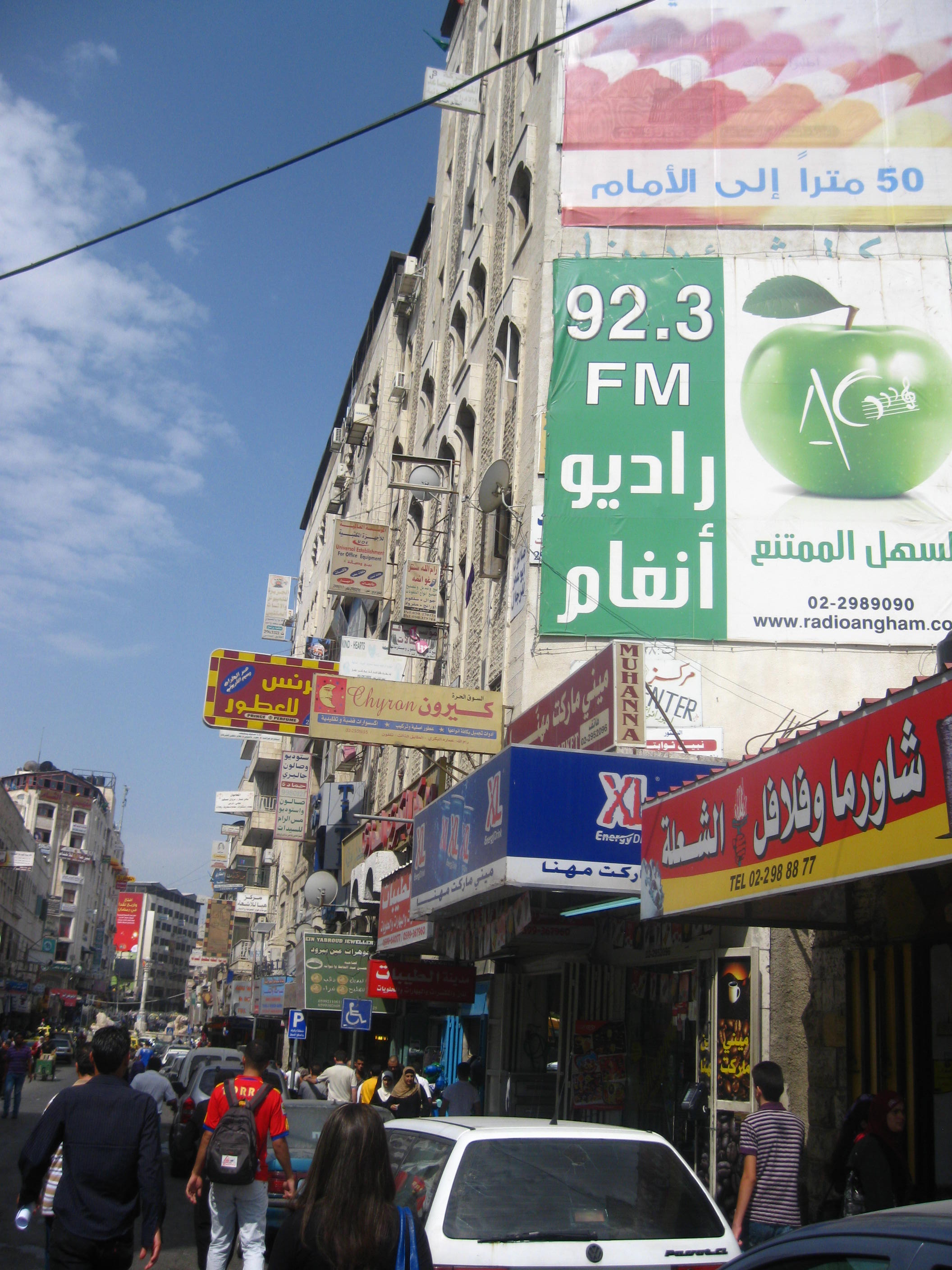 There are a lot of reasons I can think of why Germany ought to have voted “no” in response to the Palestinian unilateral bid for statehood at the UN, one which Mahmoud Abbas declared on the 1967 lines, which Abba Eban has referred to as “the Auschwitz lines.”
There are a lot of reasons I can think of why Germany ought to have voted “no” in response to the Palestinian unilateral bid for statehood at the UN, one which Mahmoud Abbas declared on the 1967 lines, which Abba Eban has referred to as “the Auschwitz lines.”
But I can’t say I am surprised that Germany, decided to abstain. Two summers ago, after the Egyptian revolution, I heard Dr. Hans-Gert Poettering, a former President of the European Parliament, speak in Jerusalem. In his talk although he professed to say that both the Palestinians and Israelis had to do more to bring about the two state solution, the wording he used made it clear that for him the onus was more on the Israelis than the Palestinians to make moves to revitalize the moribund peace process. Of interest now is the fact that at the time he spoke of the great hopes of the Arab spring in bringing true democracy to Egypt, hopes we can now say appear to have been overstated to say the least.
If you’ve been to Ramallah, you will know why on the ground it is not surprising that the Germans didn’t want to give PA Mahmoud Abbas a slap in the face at the UN by voting “no.” Walking in Ramallah, one can see how the Germans have supported Abbas’s Palestinian Authority in many ways with all sorts of aid projects–in the fields of water and sanitation, economic reform, institution building and civil society, and in the PA civil police force which is funded by the EU. In other words, Germany, like other EU countries, have “invested” in the PA, in the notion that the Palestinians under Abbas’s PA leadership, are to get a state. As such, it is not surprising that Germany would not want to have delivered Abbas a slap in the face, by voting no against his bid at the UN for non member statehood, thereby appearing to weaken him against his rival Hamas.In 2012, Germany gave Palestine nearly $93 million this year, of which about $53 million was earmarked for development. (http://www.upi.com/Top_News/World-News/2012/03/29/Germany-announces-aid-to-Palestine/UPI-21831333052082/#ixzz2E8COR9P3 ). Germany, like other European countries, is so invested in the notion of Abbas as a partner who can deliver peace (even when realities on the ground point to the fact that this is not the case), that it continues to prop him up, rather than admit that he will never be able to deliver. (As an aside, in September 2012, the EU announced it would double its aid for Palestinian development and the Palestinian Authority to €200 million in 2012, with a further directive that €100 million aid credits unspent in 2011 to be also spent in 2012. Since 1994, the EU has poured at least €5 billion in aid to the Palestinians, making it the single-largest multilateral donor).
To my mind, the more invested a European country is in building up the PA under Abbas, the less likely they would vote “no” to Abbas’s unilateral statehood bid at the UN. To do so, for one, would make it more and more uncomfortable for their NGO’s working on the ground in the West Bank.
 I have spoken to people that have worked for a German NGO in the West Bank, whose work is designed to increase democracy, and the rule of law under the PA. In private conversations the people on the ground know that there are significant problems with the PA’s commitment to democracy, and how with the control of the press, the arrest of journalists, corruption charges, cronyism, and lack of accountability concerns about the PA government have only been growing. This, of course, wasn’t the way it was supposed to be. Of course, it is not very likely that any European country that has heavily invested in Abbas’s PA, will ever come out and say that it made a mistake, and its investment hasn’t given the result it thought it would.I’ll never forget what one European working in Ramallah said to me just over a year ago, “Come back next time and I’ll show you where the beautiful people live”. He was referring to a new suburb of Ramallah, where there are upscale homes. Who are these “beautiful people” and where is a lot of this new wealth from? It’s from international aid money that has lined the pockets of Fatah cronies. My distinct impression is that the European employees of NGO’s are not blind as to what is going on the ground in the West Bank, although you aren’t likely to hear them say these things to the press. Then the EU governments would have to admit to themselves and their taxpayers that they have been duped, and that large amounts of the funds they have spent have been misused.
I have spoken to people that have worked for a German NGO in the West Bank, whose work is designed to increase democracy, and the rule of law under the PA. In private conversations the people on the ground know that there are significant problems with the PA’s commitment to democracy, and how with the control of the press, the arrest of journalists, corruption charges, cronyism, and lack of accountability concerns about the PA government have only been growing. This, of course, wasn’t the way it was supposed to be. Of course, it is not very likely that any European country that has heavily invested in Abbas’s PA, will ever come out and say that it made a mistake, and its investment hasn’t given the result it thought it would.I’ll never forget what one European working in Ramallah said to me just over a year ago, “Come back next time and I’ll show you where the beautiful people live”. He was referring to a new suburb of Ramallah, where there are upscale homes. Who are these “beautiful people” and where is a lot of this new wealth from? It’s from international aid money that has lined the pockets of Fatah cronies. My distinct impression is that the European employees of NGO’s are not blind as to what is going on the ground in the West Bank, although you aren’t likely to hear them say these things to the press. Then the EU governments would have to admit to themselves and their taxpayers that they have been duped, and that large amounts of the funds they have spent have been misused.
I remember speaking with an individual from a German NGO privately in 2011 about the Palestinian media, for example. This person spoke candidly about how Fatah controlls the print media, and how you would never hear Palestinians talking about anything political on the streets or in any public place, for fear of the Fatah government. How comfortable would things be on the ground for this NGO employee if he started saying that to the press?Finally I also remember talking to a German employee of an NGO who had visited UNWRA refugee camps near Ramallah. He acknowledged that the Palestinians living in these camps were being told by PA officials and others that they would be returning to live in pre-1967 Israel, which he knew could not be the case if ever a two state solution were to come about. When I asked him why he didn’t tell the Palestinians he met in these camps that this was a fantasy, and that they would end up living in the West Bank, he responded, “How could I?.” It was as if to say that it wasn’t up to him to burst their bubble–why should he be the fall guy?.
In short based on my visits to the West Bank, I am not really surprised that Germany voted to abstain at the UN, [As an aside, IMRA’s website has a translation of an article from Der Speigal which says that Merkal asked Netanyahu to freeze settlements, and when he wouldn’t commit to this she decided to change her vote from a “no” to abstaining. http://www.timesofisrael.com/eight-men-out-why-did-the-czechs-palau-and-half-a-dozen-others-stand-with-israel-in-the-vote-on-palestine/ ]
 What is particularly galling about Germany’s behavior, however, is that, as has been reported in the Times of Israel, Germany tried to prevent Czechoslovakia the one and only European country who voted “no” to the PA unilateral statehood bid, from doing so: According to an Israeli official, Berlin pressured Prague to at least abstain in the UN vote, “to present a more-or-less unified European position.”What was going on here? Was Germany trying to pressure Czechoslovakia, so that it wouldn’t show Germany up? After all, after the Holocaust, it’s harder to argue as Germany does to the Jews of the world that it is in its heart of hearts committed to Israel and her security, when notwithstanding Germany’s abstention, her next door neighbor Czechoslovakia has the guts to vote no.
What is particularly galling about Germany’s behavior, however, is that, as has been reported in the Times of Israel, Germany tried to prevent Czechoslovakia the one and only European country who voted “no” to the PA unilateral statehood bid, from doing so: According to an Israeli official, Berlin pressured Prague to at least abstain in the UN vote, “to present a more-or-less unified European position.”What was going on here? Was Germany trying to pressure Czechoslovakia, so that it wouldn’t show Germany up? After all, after the Holocaust, it’s harder to argue as Germany does to the Jews of the world that it is in its heart of hearts committed to Israel and her security, when notwithstanding Germany’s abstention, her next door neighbor Czechoslovakia has the guts to vote no.
“We do not agree with any unilateral steps that may hamper or jeopardize the peace process leading to the two-state solution,” the Czech Foreign Ministry said in a statement . Prague voted against the resolution “because we are afraid that it might result in a further delay in the resumption of the negotiating process.”An article published in Ma’an news,[ http://www.maannews.net/eng/ViewDetails.aspx?ID=543682 ] outlines why Czechoslovakia voted no, citing not only the Czech government’s affinity with the US, but also its history. Czechoslovakia, which lost land to Germany, Poland and Hungary on the eve of World War Two, identifies with Israel’s position in the Middle East.
“We’ve got a special feeling for Israel’s situation – that of a small nation surrounded by enemies,” a Czech official told the Jerusalem Post in May of this year.
Czechoslovakia also helped Israel in 1948, when Prague broke a UN embargo to send it weapons, including 80 planes, and when it trained pilots including future Israeli President Ezer Weizman.









